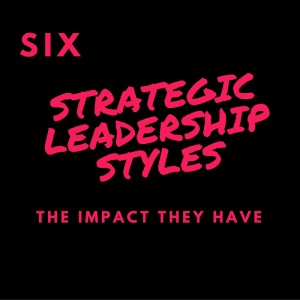I was chatting with a CEO I know about his company. He had to make some adjustments due to changes in his business from an economic down turn in the resource industry. The CEO asked if I  might profile a few people in the organization for a business impact assessment. Sometimes it’s good to know the natural abilities of people and the impact they have on the business. In this case the CEO stated, I want insight into strategic leadership capabilities of my team. An interesting request indeed!
might profile a few people in the organization for a business impact assessment. Sometimes it’s good to know the natural abilities of people and the impact they have on the business. In this case the CEO stated, I want insight into strategic leadership capabilities of my team. An interesting request indeed!
As I dusted off my people assessment tools I started to think further about the strategic leadership qualities of people. What it means and why it is so important. Strategic leadership is considered an individual’s or team’s ability to envision a future and influence others to improve the organization for long-term success and financial viability (also see Wizards, Anchors, & Pathfinders). As leaders, management and professionals engage in approaches that align with the vision and growth direction of the organization.
From what I gather there are six strategic leader styles. All are important and should be leveraged to create business impact at the appropriate time in the organization.
Pace Setter: These people have high standards and tend to focus on performance. Better and faster is what they ask of people. Great if you are getting innovation out of the starting gate to beat the competition and be first in class. The challenge, sometimes these people create unrealistic goals and objectives. A warning label should be attached to these people as they can negatively impact morale. Making people feel like losers. Upside, stuff gets done quickly.
General Authority: Also known as the dictator. Policies and procedures are the rule. Goals and objectives are decided for everyone. There are tight controls and people don’t get to have a lot of input or say. There are times when General Authority is needed. Look at history and any major significant event. The point, there are times when authority leadership is a good thing. And this is being written by a Gen X’er. I hope you know what I mean. If not, contact me and I will send you some Gen X’er information.
Harmony Seeker: This leader is a great conflict resolver as they connect people and are in tune with their feelings and the feelings of others. People will receive a lot of positive vibes and praise from this person. Wait, I can feel a big hug-in about to take place. The downside, poor performers may go unchecked. On the upside, a lot of organizations can use the Harmony seeker as they bring a little bit more morale (love) to the work environment. This person is great for the team culture.
Coach in the Corner: This style of leadership is very popular in organizations today. It is a great skill to learn at all levels. This style is best to build people’s strengths to make everyone more successful. The downside, defiant and unwilling teammates who don’t like change or want to learn. Recently I delivered a program called Coaching and Delegation for the Professional Who Leads (see bottom of page). In that program we focused on three key skills, coaching, delegation and productivity. We worked through everyday models that the leader and professional could use to build the skills of others. Using a practical and hands-on coaching playbook approaches for the leader and professionals who is on the go. The point, leaders who coach need to be trained on the skills needed to build people.
The Demander: This person expects you to comply immediately with their orders. If you don’t do what they tell you there is an “or else” attached to it. Jump and do what I want and you are to say how high. Let’s be clear in today’s business world we call them the bully. They get things done by bullying people into submission. These people can create a lot of fear in the workplace going undetected and unsolved. Fear for your job, your livelihood, standing in the community or any number of other reasons. These people have been known to create situations where people engage in illegal activities. They simply complied and acted appropriately to opportunities that are presented. Everyone is doing it so it must be all right. Justifying actions taken. Over time there is a negative impact on the business environment. (Watch the documentary Enron: The Smartest Guy in the Room for a lesson on the power of compliance)
Engaging Leader: This person is best known for getting people to participate. Team members including leaders, managers and professionals are more involved in the decision and consensus making process. This creates inclusiveness. Everyone feels they have a voice as ideas are shared. Conversations and discussion is encouraged creating a more democratic culture. The reality is that you can’t please everyone. At some point an adult must take over (see the Deep Dive – innovation) and make some decisions. The engaging leader is capable of taking charge at the right time. They are aware that they can create a successful business culture by providing the opportunity for people engagement. Real engaging leaders and cultures are a blast to work for as people feel heard.
This was a fun blog to write as it dealt with strategic leadership styles. I do not believe a person is just one style. We have a primary style coupled with others. An organization needs a combination of each one of these leadership styles to succeed. The exact recipe may be a matter of where your organization is at this present time and where it is you need to go. Ultimately you need a balance and getting the right people connecting and relating on the bus for the journey ahead.
The choice is yours. Make it a great journey.
Other Articles You Might be Interested In
Also see Wizards, Anchors, & Pathfinders
Also see What CEOs Want 8 Essential Management Team Attributes









